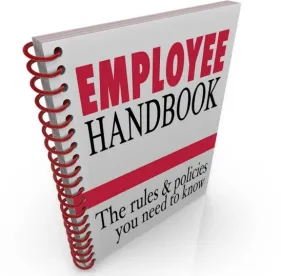Blog posts warning of the perils of employer handbook policies are starting to sound like broken records. However, a recent National Labor Relations Board (NLRB) decision adds to the “handbook policy” reminders – even changes to employer practices regarding lawful policies can be risky when done at the wrong time.
In Intertape Polymer Corp., 363 NLRB No. 187 (May 10, 2016), the board affirmed its prior decision on remand from the Fourth Circuit, finding that the employer had committed an unfair labor practice. The employer, which conducted manufacturing operations in South Carolina, had a policy prohibiting literature distribution during working time and in working areas. Such a rule would be considered lawful. According to In Re Nova Southeastern Univ, 357 NLRB No. 74 (Aug. 26, 2011), “[T]he employer can have a lawful no solicitation rule . . . . [T]he employees can be prohibited from engaging in handbilling on company time and in a work area and, a company could show that a ban is necessary to maintain workplace order and discipline.” The employer sought review before the Fourth Circuit, and the court enforced the board’s finding based on the employer’s confiscation of union flyers from the employee breakroom.
Leading up to the time when the employer was faced with a union campaign, literature left in the employee break room (e.g., newspapers, magazines, etc.) remained untouched until at least the end of the workday. Thus, the employer had a specific practice when it came to enforcing its rule. After the union filed its representation petition, supervisors began removing the union literature shortly after employees finished their breaks – a change from what it had done prior to the petition. The board and the court agreed that the employer’s “change in policy was an unlawful ‘reaction to and countermeasure against’ the union campaign.” 363 NLRB No. 187.
The lesson here: remember to review recent board law not only when implementing new employee rules, but also when considering changes to the way rules are enforced. Either change can be potentially problematic.




 />i
/>i

